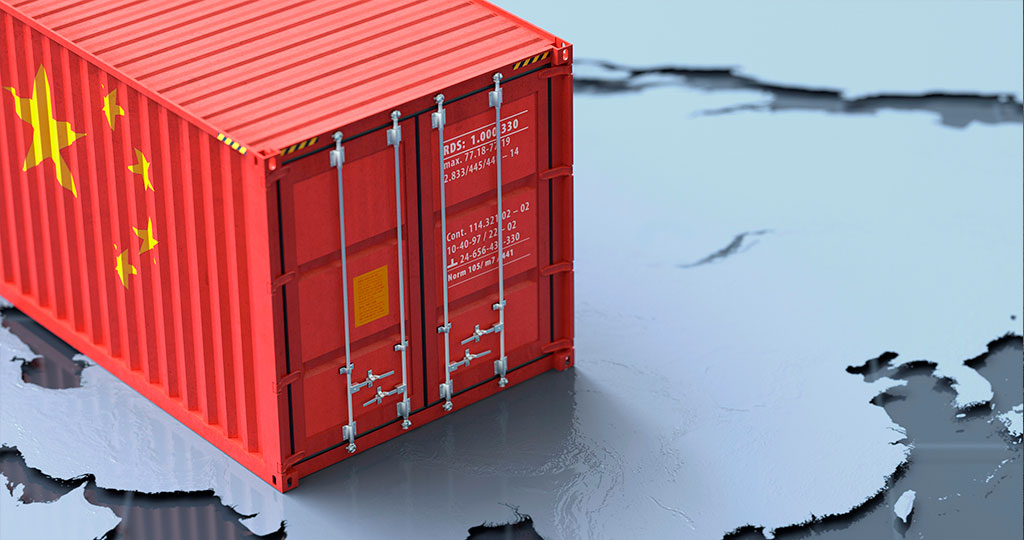The way goods are moved around one city to another has not transformed all that much throughout the years. Planes, trucks, trains, and ships for smaller shipments remain the main methods of shipping. What has transformed is how big the shipments are and how they’re monitored by software.
These days, we see small, more customized orders, a predominant increase of ecommerce in logistics, and more frequent shipments. There has been a huge amount of innovation, and transportation has become much nimble because of it. This article talks about the different types of transportation used in the logistics industry:
Air Transport
Air logistics is an essential part of most international logistics networks. It’s vital to handling the flow of information, energy, foods, services, information, and even people from beginning to end. That makes professional logistical support vital.
Air transport is helpful for many different reasons: it is fast, convenient, and does not have to compete along with natural barriers. Road transport is the fastest way to deliver items that only have a short distance. However, air transportation is the quickest way for freight that has a further destination. Also, it has been deemed as the best mode of transportation for perishable items.
On top of that, air freight does not need any infrastructure investment that railways do; airplanes fly freely. Meaning, you don’t need to spend the initial money creating a pathway to your destination to get there.
You see, the lack of barriers also indicates that it is accessible to every area, irrespective of the land’s obstruction. Nonetheless, one drawback is that planes could be impacted by any type of inclement weather.
Whether it’s high winds, snow, or rain, your shipment is more likely to get delayed if any weather condition becomes extreme.
Marine Transportation
This mode of transportation is notoriously slow, but that does not really matter when a product has a long lead period. Marine transportation is a good choice for people looking to ship bulky products that are not in much of a rush.
This is sometimes much reasonable compared to road transport, but ships are typically the main cost. You don’t need to think about the road tolls and other similar fees. Roadway transportation could be delayed by rain or other forms of inclement weather, but the same conditions might not impact marine transport.
The key drawback of this transportation is that it can be challenging to track the specific location of the goods in transit. That could be a huge deal-breaker for others.
Rail Transportation
This mode of logistics transportation is not just sustainable but is also quicker compared to shipping and much affordable compared to air operations.
You see, railway transportation is no doubt the most reliable way of transport. Compared to marine and road transport, rail is rarely influenced by weather conditions. Transport trains will run in the snow, fog, rain, and other conditions that would otherwise delay shipments brought by other methods. Rail is barely not influenced by weather conditions.
Railway service is more accurate compared to other modes of shipment with fixed schedules running regularly.
On top of that, rail transport provides massive carrying capabilities that can increase to fit your requirements. Compared to boats or trucks with a fixed amount of space that cannot be exceeded, added wagons can be added to trains if you require more room.
Aside from all the advantages for you and your business, you will also be providing many opportunities to the surrounding communities. Rail transportation can offer employment opportunities to both unskilled and skilled workers, which makes it a good option for the whole community.
Nonetheless, the main drawback is that it can take much longer to get your freight delivered than with other transportation modes, especially when there are delays in transportation. You also need to arrange container drop off and pick up at the terminals that could end up taking a lengthy time.
Road Transportation
Let’s face it. Globalization is fueling the need for effective logistics operations to guarantee smooth supply chains. That puts increasing pressure on road transport to provide service excellence.
Logistics providers in many nations experience a massive lack of skilled staff. Those working in the industry need to keep up along with the newest technological opportunities and developments but often miss formal training.
Most individuals seeking for jobs don’t know about the positions range accessible with logistics and road transport. You will find many benefits to this mode of transportation, particularly for organizations depending on fast delivery to keep their customers.
If goods are intended to be delivered right away, your best bet would be road shipping transportation. Water transport is extremely slow, and it could be a trouble to book a railway transport as well.
Maritime tracking and other locations are more cost-efficient than other options. With rail transport, when there is not railway leading to your desired location, you will have to construct it—that can be an expensive investment.
Nonetheless, you will find roads leading to pretty much everywhere, paid for and designed by the government. Often, you will only need to pay a small charge to use them. Further, roadway transportation can be cost-efficient, as it offers warehouse-to-warehouse or door-to-door service. That enables cartage, loading and unloading to be substantially lower than other methods.
Intermodal Transportation
Did you know that intermodal transportation provides the best of both worlds? It combines different transportation methods to offer you the best and fastest shipping period possible. This method is not just time-efficient but cost-efficient as well.
More and more shippers take advantage of this option to reap the perks of the environmental benefits, cost savings, and highway safety results. Intermodal transportation is continuing to increase in popularity with the lower rates, flexibility, predictable pricing, and standardized transit schedules.
Are you looking for a reputable transportation company that can meet all your needs more? Would you like to get an instant calculation about your logistics needs, such as clearance details, excise taxes, customs tariffs, VAT, insurance and more? Click here to find out more.





